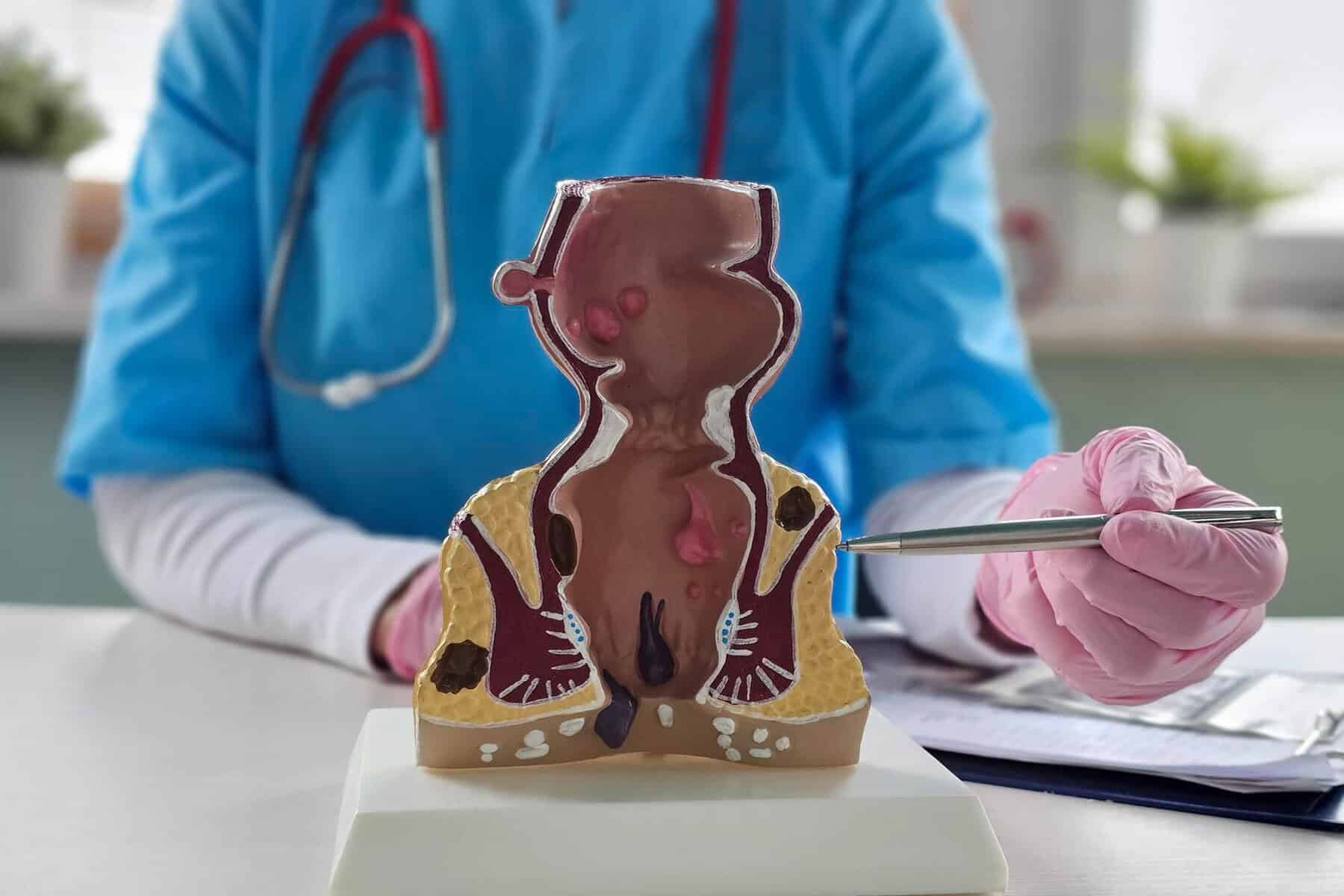Rectal Bleeding Diagnosis and Treatment
Rectal bleeding can be a sign of various conditions affecting the lower digestive tract, from minor issues such as haemorrhoids to more serious concerns such as colorectal cancer. A thorough assessment is essential to identify the cause and determine the most appropriate treatment.

Overview of Rectal Bleeding
Rectal bleeding refers to blood passing from the anus, often noticeable on toilet paper, in the toilet bowl, or mixed with stool. It can range from mild to severe and may be associated with symptoms such as pain, discomfort or changes in bowel habits. Common causes include haemorrhoids, anal fissures, diverticulosis, inflammatory bowel disease (IBD) and colorectal polyps or cancer. A specialist evaluation, which may include diagnostic procedures such as a colonoscopy or sigmoidoscopy, helps determine the cause and guide appropriate treatment.


The Importance of Investigating Rectal Bleeding
Rectal bleeding is a common symptom that can have a range of causes, from benign conditions like haemorrhoids to more serious concerns such as colorectal cancer. While haemorrhoids are the most common cause of rectal bleeding, colorectal cancer is the second most frequent cause in individuals over the age of 45.
A change in bowel habits, such as persistent diarrhoea, constipation, or unexplained weight loss, alongside rectal bleeding, could indicate an underlying issue that requires medical attention. Early detection is crucial, as colorectal cancer is more treatable when diagnosed in its early stages. If you are experiencing these symptoms, it is essential to undergo a medical assessment to determine the cause and ensure prompt treatment if needed.
FAQs
- What causes rectal bleeding?
Common causes include haemorrhoids, anal fissures, diverticulosis, inflammatory bowel disease and colorectal polyps or cancer. A medical evaluation is necessary to determine the underlying cause.
- Should I be worried about rectal bleeding?
Rectal bleeding and changes in bowel habits are common symptoms of colorectal cancer, particularly in individuals over the age of 45. While haemorrhoids are the most frequent cause, colorectal cancer is the second most common reason for rectal bleeding in this age group. If you experience persistent bleeding, changes in stool consistency, or unexplained weight loss, it is essential to seek medical advice for further assessment and early detection.
- How is rectal bleeding diagnosed?
Diagnosis typically involves a medical history review, physical examination and tests such as a colonoscopy, sigmoidoscopy or stool analysis to identify the source of bleeding.
- What treatments are available for rectal bleeding?
Treatment depends on the underlying cause and may include lifestyle changes, medications, minimally invasive procedures or surgery for more severe conditions.
- Can rectal bleeding be prevented?
Maintaining a high-fibre diet, staying hydrated and avoiding excessive straining during bowel movements can help prevent common causes such as haemorrhoids and anal fissures. Regular screenings are also important for early detection of colorectal issues.

Why Choose The Forbury Clinic?
The Forbury Clinic offers expert assessment and treatment for rectal bleeding using advanced diagnostic techniques and minimally invasive procedures. Our experienced colorectal specialists provide personalised care, ensuring accurate diagnosis and tailored treatment plans. With state-of-the-art facilities, we prioritise patient comfort and efficient recovery. From initial consultation to follow-up, our dedicated team supports you every step of the way.